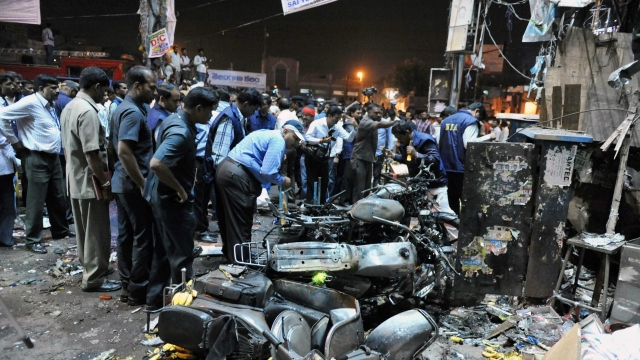2005 Hyderabad suicide blasts: Ten Muslims declared innocent after 12 years in jail, but is that a surprise?

On Thursday, August 10, 10 men were acquitted of involvement in the 2005 Hyderabad suicide bomb blasts that killed one home guard by the Namapally Metropolitan Sessions Court. While this news has been already circulated on various news outlets, it again acts as a stark reminder of how countless Muslim youth continue to languish in jail over charges of terrorism, waiting to see a trial. This particular case went on for almost 12 years; ruining the lives of all the 10. As defence counsel Mohammed Abdul Azeem pointed out, there were 20 accused in the charge sheet, of which three were reported dead, 10 were arrested and seven are absconding. But here, let us focus on the ordeal of the ones who are still alive.
When we called Azeem, he was of course, busy and slightly tired after a long and eventful day. But he did spare some time to explain the entire 12-year saga that has unfolded in front of his eyes. “The 10 were arrested between 2005 and 2006. Not one of them comes from a financially strong family; in fact, while some families can sustain themselves, others can’t even do that. Of the 10, five were from Hyderabad, three from Karnataka and two from North Bengal,” he told TwoCircles.net. Giving examples, Azeem says, “One of the accused from Hyderabad, Shakeel, used to work as a mechanic while another, Kareem, used to work as a welder. None came from a well-to-do family.”
As is often the case ( Shabbir Gangauli, Yahya Kammukutty, Hanif Pakitwala and several others) the police filed the chargesheet and the case went into cold storage. It was not until 2008 that the trial began. So in essence, the 10 had already spent three years in jail for a crime that was not proven. But even after the trial began, the police tried every trick to delay the proceedings. Talking about the trial, Azeem said, “Initially they (the accused) were charged under IPC and Explosives Act and 40 witnesses were produced in this regard. Then, when all the witnesses had testified, the police decided to include the UAPA (Unlawful Activities (Prevention) Act) clauses too. We tried to get the UAPA clauses quashed but the Honourable High Court dismissed our petition. So, we were back to square one.”
Then, there was the issue of the defendants being produced in court during the trial. The accused, as Azeem informs us, were regularly transferred to various jails during the trial so a lot of time, they wouldn’t even be present during the proceedings. Then, in 2012 the case got stalled for two years after the investigating officer M. Diwakar left the country for some work and resumed only after he got back.It is important to also point out that during this entire period, all but one managed to get bail for any reason. The one that got bail, Azeem pointed out, was because his health condition had deteriorated to a point that made any recovery impossible. “Take the example of Shakeel. He had to be hospitalised time and again and had two surgeries. But even after that, he would be sent back to prison. For 12 years, they were denied bail,” said Azeem.
The charges itself were so weak, and seem such a stretch of imagination that one can only wonder what took the court so long to announce them as innocents. “Shakeel, for example, was accused of having a gun and some ammunition. What does that have to do with a suicide blast? Kareem, for example, was arrested because some chemicals were found close to his house. Did that match the chemicals recovered from the blast spot? No. Then what was his crime,” says Azeem. He added that others too were booked on the most trivial charges, yet their lives have been destroyed.
According to agency reports, the police will look into the court order and decided their next course of action. But the question remains, who will give these Muslim youths their lost years? Or should they just be happy for the fact that unlike thousands of others, at least they saw the light of justice? What one can be absolutely sure of, is that this news will not hog any primetime coverage. The answer to this question is not something that the Nation wants to know, it seems.
